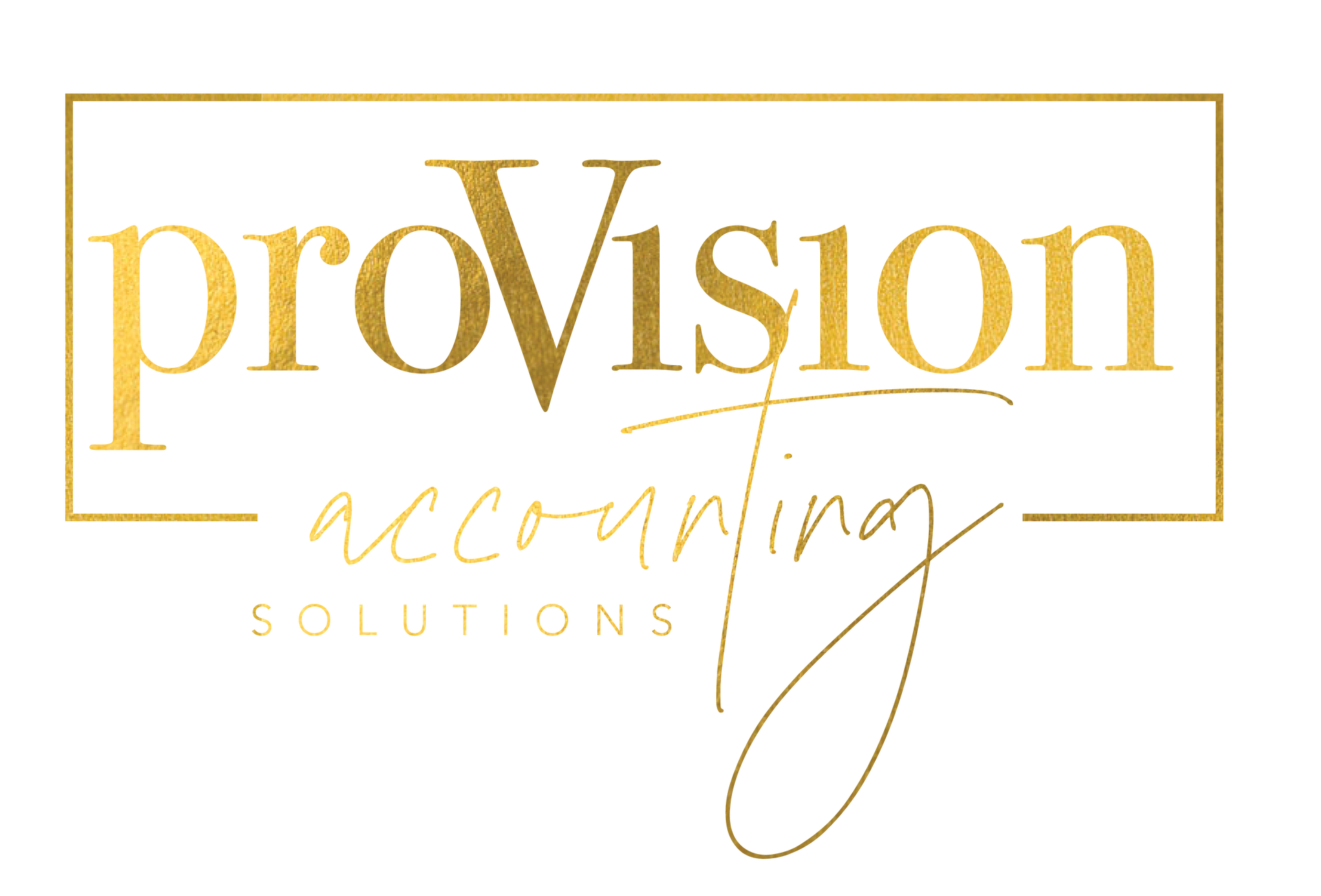Your Road to Financial Relief: Back Taxes Solutions for Business Owners
Maintaining financial organization is not just a good practice – it's a necessity

In the dynamic landscape of business, maintaining financial organization is not just a good practice – it's a necessity. Whether you're a small startup or a well-established enterprise, a sound financial structure forms the backbone of your operations. Here's why financial organization is paramount for the success of your business:
1. Informed Decision-Making:
- Financial organization provides a clear snapshot of your company's financial health. This insight enables informed decision-making, allowing you to allocate resources wisely and identify areas for improvement.
2. Regulatory Compliance:
- Adhering to financial regulations is non-negotiable. Organized financial records make it easier to comply with tax regulations, legal requirements, and other financial standards, ensuring that your business operates within the bounds of the law.
3. Enhanced Credibility:
- Whether dealing with investors, lenders, or clients, a well-organized financial structure enhances your business's credibility. It instills confidence in stakeholders, showcasing your commitment to transparency and responsible financial management.
4. Efficient Resource Allocation:
- Financial organization helps track expenses and revenue streams, facilitating effective resource allocation. This efficiency is crucial for optimizing operational costs and ensuring that funds are directed towards activities that contribute to business growth.
5. Planning for the Future:
- Strategic planning requires a deep understanding of your financial landscape. Organized financial data aids in forecasting and budgeting, enabling you to set realistic goals, anticipate challenges, and plan for long-term success.
In conclusion, financial organization is not merely a box to be ticked; it's a strategic imperative. It empowers your business to navigate challenges, seize opportunities, and build a solid foundation for sustained growth.

As the year wraps up, it’s a good time to take a step back and look at how your trucking business performed — the wins, the setbacks, and everything in between. Most owners naturally focus on what went right, but the real opportunity often comes from looking at what went wrong. Every mistake has a lesson, and if you pay attention, those lessons can turn into wins for the year ahead. Mistakes aren’t failures — they’re feedback. The key is knowing how to reflect on them, spot patterns, and take action. Step 1: Take a Hard Look at What Went Wrong The first step is to reflect honestly on the year. Which decisions caused stress? Where did operations or planning fall short? Did cash flow or scheduling issues pop up that could have been avoided? It’s not about beating yourself up — it’s about understanding exactly what happened so you can make smarter decisions going forward. Jotting down your observations can help turn your reflections into actionable plans for next year. Step 2: Identify Patterns in Your Mistakes Once you’ve reflected, look for recurring issues. Are there situations that keep causing headaches, like trucks breaking down too often, routes that cost more than expected, or missed delivery windows? Recognizing patterns helps you fix the root problems instead of just putting a band-aid on symptoms. Ask yourself: Are there problems that happen over and over? Are certain decisions consistently causing bottlenecks or stress? Which processes need tightening, so the same mistakes don’t happen next year? Step 3: Turn Lessons Into Actionable Goals Noticing mistakes isn’t enough — you have to act. Turn each lesson into a clear goal or step that improves your business. For example, if truck maintenance was a repeated issue, create a stricter maintenance schedule or budget for repairs. If cash flow got tight, consider building a buffer or diversifying your client base. Tips for actionable goals: Make each goal specific and measurable — you should be able to track progress. Break big goals into smaller, manageable steps. Set deadlines so improvements actually happen, not just stay on paper. Step 4: Shift How You View Mistakes One of the biggest mindset shifts you can make is seeing mistakes as learning opportunities rather than failures. If a delivery went sideways or a route cost more than expected, treat it as a chance to gather data and improve. A mindset like this: Helps you stay calm under pressure. Encourages problem-solving instead of dwelling on the setback. Makes your business more flexible and adaptable for the unexpected. Step 5: Communicate Lessons with Your Team Running a trucking business isn’t a solo effort. Share lessons with your team — drivers, dispatchers, mechanics — to prevent the same mistakes from happening again. You don’t need a formal meeting; even quick check-ins or after-action discussions can work. Some tips for effective communication: Keep it solution-focused, not blame-focused. Ask your team for their ideas — they often see things you don’t. Reinforce positive changes so everyone knows what’s working. Step 6: Plan Strategically for Next Year Once you’ve reflected, spotted patterns, and set goals, it’s time to make a plan for next year. Map out your priorities: maintenance schedules, route planning, driver assignments, and cash flow safeguards. Planning ahead ensures you don’t repeat the same mistakes and keeps your business running smoothly. Practical steps for planning: Review last year’s biggest headaches and plan fixes. Set measurable objectives for improvement. Put systems in place to track progress and adjust when needed. Step 7: Celebrate Wins Along the Way Don’t forget to acknowledge what went right this year. Even small wins — a timely delivery, a satisfied client, or a truck running without issue for months — matter. Celebrating these successes keeps your team motivated and creates momentum for the year ahead. Final Thoughts Mistakes are inevitable — no trucking business runs perfectly every year. What separates thriving fleets from struggling ones is the ability to learn and act on lessons. By reflecting honestly, spotting patterns, setting actionable goals, shifting mindset, communicating with your team, and planning strategically, you can turn even a rough year into a foundation for growth. Setbacks become strategies, mistakes become milestones, and lessons turn into wins. Take some time this week to review your year and outline actionable steps for next year. If you want personalized guidance on turning your lessons into a concrete plan for growth, schedule a call here to discuss services that can help your trucking business hit the ground running in the new year.

Freight contracts are more than just paperwork — they’re the roadmap for how your business gets paid, what you’re responsible for, and what risks you take on. Yet far too many trucking business owners sign agreements without fully understanding the terms. One overlooked clause can cost you thousands, create headaches, or lock you into conditions that don’t work for your business. The good news is that with a little attention and strategy, you can protect yourself and make sure every contract works in your favor. Read the Entire Contract Carefully It might sound obvious, but it’s critical to read the whole contract before signing. Don’t skim sections or assume standard terms are automatically fair. Pay attention to payment terms to understand how quickly you’ll be paid and whether there are penalties for late invoices. Look at delivery requirements, including load windows, layover rules, and detention policies, so you know exactly what’s expected. Make sure you also understand liabilities and insurance requirements, including what coverage you need and what financial responsibility falls on you if something goes wrong. Taking the time to read every detail now is far cheaper than dealing with surprises later. Key Points to Watch For: Payment terms and late payment penalties Load windows, delivery deadlines, and detention policies Insurance requirements and liability responsibilities Understand the Rate Structure Freight contracts aren’t always as straightforward as they appear. Rates might be calculated per mile, per load, or as a flat fee, and some contracts include fuel surcharges, toll reimbursements, or accessorial fees. You need to know how your rate is calculated, whether it can change mid-contract, and how additional costs or fees are handled. Understanding the rate structure up front allows you to accurately forecast revenue and ensures that your business remains profitable. Need help understanding your rates? Watch for Risky Clauses Contracts often contain clauses that can create unexpected obligations. For example, exclusive agreements may prevent you from hauling for other companies, automatic renewal clauses can lock you in longer than intended, and indemnification language could make you liable for claims that aren’t entirely your fault. Termination rules are also important to understand — knowing how and when either party can end the agreement can prevent legal or financial surprises. Spotting these clauses early allows you to negotiate terms or make informed decisions about whether to sign. Things to Look Out For: Exclusive agreements restricting who you can work with Automatic renewal clauses that extend the contract without notice Termination rules and conditions Negotiate When Necessary A contract isn’t set in stone until both parties sign it. If you notice terms that could negatively affect your revenue, flexibility, or liability, speak up. Many shippers and brokers expect negotiations on things like payment schedules, advance deposits, and insurance requirements. Negotiating professionally demonstrates that you know your business, value fair agreements, and are serious about protecting your operations. Keep Records and Track Changes Once a contract is signed, it’s essential to store a copy in a secure and organized location. Keep track of any amendments or addendums to ensure you’re always aware of your current obligations. Having a clear record protects you in the event of disputes and makes accounting and compliance much easier. The Bottom Line Freight contracts define your responsibilities, revenue, and risk exposure, so never sign blindly. Take the time to read carefully, ask questions, and negotiate where necessary. Treat every contract as a tool to protect your business and support its growth. Doing so ensures that your agreements are fair, manageable, and aligned with your long-term goals. Don’t leave your business exposed to costly mistakes. Book your call with me today to review your freight contracts and ensure you’re signing agreements that work for you.

Running a business isn’t always a straight road. Unexpected challenges — from equipment breakdowns and cash flow issues to losing a client or facing regulatory hurdles — can throw even the most organized business owner off track. The key isn’t to avoid setbacks, but to handle them in a way that keeps your business moving forward. Here’s a step-by-step approach to handling setbacks without losing momentum: Step 1: Accept the setback without panicking Take a deep breath and resist the urge to overreact. Feeling frustrated or anxious is normal, but dwelling on the situation wastes time and energy that could be spent on solutions. Focus on what you can control and identify the areas that require immediate attention. Key points to keep in mind: Stay calm and acknowledge your emotions without letting them take over. Clearly identify what went wrong and which resources are affected. Focus on solutions rather than ruminating on problems. Step 2: Break the problem into manageable steps Large challenges can feel overwhelming, but breaking them down into smaller, actionable steps makes them easier to tackle and reduces stress. For example, if a truck breaks down unexpectedly: Arrange repairs or a replacement vehicle as soon as possible. Adjust delivery schedules or reroute loads to minimize disruption. Communicate with clients about potential delays to maintain trust. By taking one step at a time, you keep your business moving forward instead of freezing in uncertainty. Step 3: Leverage your support system Even experienced business owners can’t handle everything alone. Using your support system allows you to gain perspective and find solutions faster. Consider: Asking your team for input on immediate challenges. Consulting with industry peers or mentors for guidance. Working with accountants or consultants to assess financial or operational risks. Collaboration not only reduces stress but also helps you make informed decisions that protect your business. Step 4: Adjust your plan without abandoning it Flexibility is key when setbacks occur. Your original strategy may need tweaks, but your overall goals should remain intact. Keep these ideas in mind: Reallocate resources or adjust schedules to meet your priorities. Explore alternative approaches or opportunities to overcome the challenge. Use the setback to identify weaknesses in your systems and implement improvements. Momentum doesn’t come from perfection — it comes from persistence, adaptability, and continuous action. Step 5: Reflect and learn for the future Once the immediate challenge is under control, take time to reflect on what happened. Reflection transforms setbacks into valuable lessons for growth. Ask yourself: Could this setback have been avoided? What processes can prevent similar issues in the future? How can you apply the lessons learned to strengthen your business operations? Documenting insights and implementing improvements builds resilience and prepares your business for future challenges. Step 6: Keep moving forward The ultimate goal isn’t just recovery, it’s growth. Momentum is maintained by consistent action, even when progress feels slow. Focus on: Celebrating small wins and acknowledging progress along the way. Continuing to execute your plan with adjustments as needed. Reinforcing systems and processes to minimize the impact of future setbacks. Every small step forward reinforces your ability to overcome obstacles and keeps your business moving toward long-term success. Setbacks are inevitable, but losing momentum doesn’t have to be. Schedule your strategy session today to develop a blueprint that keeps your operations on track — no matter what challenges arise.

Taxes. Even saying the word can make your head spin. But if you’re a business owner, understanding the difference between tax deductions and tax credits could save you thousands of dollars each year. Most business owners know they can deduct expenses, but far fewer fully understand how deductions and credits actually work together — or how to strategically use them to reduce your tax burden. The bottom line is simple: deductions reduce your taxable income, while credits reduce the taxes you owe — and using both correctly can maximize your savings . Deductions: Lower Your Taxable Income Tax deductions are essentially business expenses that the IRS allows you to subtract from your total income, lowering the amount of money they tax. For example, if your business earns $100,000 and you have $20,000 in deductions, only $80,000 is taxable. This is particularly useful because the higher your taxable income, the more valuable deductions become — they reduce the portion of your earnings subject to higher tax brackets. Common business deductions include: Vehicle expenses – fuel, maintenance, insurance, and depreciation if you use vehicles for work Office supplies and equipment – computers, phones, furniture, and software Employee salaries and benefits – wages, bonuses, and health benefits Business travel and meals – including lodging and client meals (with limitations) Home office expenses – if you have a dedicated workspace for your business Deductions can also include less obvious items, like professional memberships, training programs, and marketing costs. Tracking these consistently throughout the year ensures nothing slips through the cracks and maximizes your potential savings. Credits: Cut Your Tax Bill Dollar for Dollar Tax credits are even more powerful than deductions because they directly reduce the amount of tax you owe. Unlike deductions, which lower the income the IRS taxes, credits reduce your tax bill on a dollar-for-dollar basis. For example, if you owe $5,000 in taxes and qualify for a $1,000 tax credit, your tax liability drops to $4,000. Some credits are refundable , meaning if your credit exceeds your tax owed, you could receive the difference as a refund — a significant boost to cash flow. Popular business tax credits include: Small business health care tax credits – for providing employee health insurance Energy-efficient equipment or vehicle credits – for purchasing equipment or trucks that reduce your carbon footprint Research and development credits – for innovative processes, technology, or product improvements Hiring credits – for veterans, individuals from targeted groups, or employees in specific industries Because tax credits are not dependent on your tax bracket, they’re a direct way to save money. However, many credits come with eligibility rules, deadlines, and documentation requirements, so keeping detailed records and planning ahead is critical. So, What’s the Difference? The easiest way to remember the difference: Deductions Lower the income that is taxed. Reduce the portion of your earnings subject to your tax rate. Scale with your income; tied to standard business expenses but still require documentation. Credits Lower the tax you actually owe, making them generally more powerful on a dollar-for-dollar basis. Are fixed and sometimes refundable; often have strict eligibility rules. Key Insight Knowing how to leverage both can be a game-changer for your finances, especially if you run a small or growing business where every dollar counts. How to Make Both Work for You To maximize savings, you need a plan, not just luck. Start by keeping detailed records throughout the year: track fuel usage, vehicle maintenance, payroll, office expenses, client meals, and any investments in energy-efficient or innovative equipment. Planning ahead can help you identify opportunities for credits you might not realize exist. For example, purchasing an energy-efficient truck may qualify for a tax credit, while the depreciation and operating costs are deductible. Combining credits and deductions like this multiplies your potential savings. In addition, reviewing your options regularly allows you to make strategic business decisions, like timing purchases or hiring employees, to maximize tax benefits. Final Takeaway Taxes don’t have to be a guessing game. When you fully understand the difference between deductions and credits, you can make smarter financial decisions, retain more of your hard-earned revenue, and reinvest in growing your business. Don’t leave money on the table this year. Schedule a call today to review your business and uncover every deduction and credit you qualify for. A quick conversation now could save you thousands and give your business a smarter plan for growth.

Setting revenue goals for your trucking business isn’t about throwing a number on a whiteboard and hoping it sticks. It’s about creating a roadmap that connects your hard work, equipment, and resources to real results. Too many owners set goals based on what they want to earn instead of what their operations can truly support. The difference between a wish and a real plan comes down to one thing, which you'll hear me mention quite often — understanding your numbers.

Growing your trucking business is exciting — there’s nothing like seeing your fleet grow and taking on bigger contracts. But here’s the thing: expanding too fast can actually put your whole business at risk. While growth is important, moving too quickly without the right systems, planning, and financial cushion can lead to headaches — or worse, serious setbacks. Why Growing Too Fast Can Backfire 1. Cash Flow Takes a Hit Adding new trucks and drivers sounds great on paper, but the costs add up fast: fuel, insurance, maintenance, permits, and payroll. If you don’t have enough cash reserves, it’s easy to get stuck scrambling to cover day-to-day expenses. Cash flow isn’t just a number — it’s the lifeline of your business. Expanding without tracking it closely is like driving blind through a busy intersection. 2. Operations Can Get Overwhelmed Your systems might work perfectly for a small fleet, but throw in more trucks and routes, and suddenly scheduling, maintenance, and compliance can spiral out of control. Without proper tools and processes, deliveries get delayed, drivers get frustrated, and customers notice. 3. Quality Can Suffer When your attention is split between managing growth and handling daily operations, service quality can slip. Missed pickups, delayed deliveries, or overlooked safety protocols can hurt your reputation — and in trucking, your reputation is everything. 4. Hiring Mistakes Become Costly Hiring too quickly can lead to mismatched team members, incomplete training, or drivers who don’t fit your company culture. Any of these can lead to inefficiencies, accidents, or turnover — all of which cost time and money. 5. Financial Overstretch Is Risky Many owners take on loans or financing to fund expansion. Debt isn’t inherently bad, but overextending leaves your business vulnerable. If unexpected repairs, fuel spikes, or slow-paying clients hit, that debt can turn from a growth tool into a serious liability. How to Expand Safely Growing your business doesn’t have to be risky — it just needs a smart plan. Here’s how: Plan With Data: Look at your profit margins, cash flow, and current operational capacity before adding trucks or staff. Don’t guess — know your numbers. Scale Gradually: Instead of doubling your fleet overnight, add vehicles and routes in small, manageable steps. Track how each addition affects your finances and operations. Invest in Systems: Scheduling software, maintenance tracking, and accounting tools become even more important as you grow. The right systems help you keep everything running smoothly. Hire Smart, Not Fast: Take the time to onboard and train each driver or staff member properly. A well-trained team prevents mistakes and keeps your business running efficiently. Keep a Cushion: Always maintain a financial buffer to handle unexpected costs. Expansion is exciting, but emergencies will happen — and you want to be ready. Final Thoughts Expanding your trucking business is a milestone worth celebrating, but moving too quickly can create more problems than it solves. Growth needs to be strategic, measured, and supported by strong systems and cash flow . Think of it like a long haul: steady, consistent, and well-planned beats fast and reckless every time. If you’re thinking about adding trucks, drivers, or new routes, take a moment to plan. The right growth strategy protects your business, keeps your team happy, and sets you up for long-term success. A quick review of your operations and finances can show you where to expand confidently — without putting your business at risk. Reserve your spot for a consultation today and learn how to grow your trucking business smartly and safely.

Owning a trucking company takes more than just driving skill — it demands endurance, sharp decision-making, and the ability to juggle a dozen moving parts at once. But while hard work might get your company off the ground, it’s not enough to keep it growing. Many trucking business owners stay stuck in “survival mode,” handling dispatches, payroll, and breakdowns while trying to keep every wheel turning. What’s often missing isn’t effort — it’s the mindset shift from being the boss to being the CEO.

Every trucker knows the feeling — watching the fuel gauge drop while thinking about how much that tank just cost. For most trucking businesses, fuel is one of the largest and most unpredictable expenses . When prices rise or routes get inefficient, your profits take a direct hit. But here’s the truth: you can’t control fuel prices, but you can control your fuel strategy. The difference between a business that struggles with fuel costs and one that manages them effectively often comes down to simple habits, smart tracking, and better planning. Let’s talk about how to keep more of your hard-earned money in your pocket — not in the pump. 1. Know Your True Fuel Costs Most trucking business owners track what they spend on fuel — but not what it actually costs them. Your true fuel cost includes: The price per gallon Route efficiency Idle time Empty miles Driver habits When you calculate your cost per mile (including fuel), you start seeing where money is leaking out. A few cents per mile may not sound like much, but over thousands of miles, it adds up fast. 2. Cut Idle Time Idling is one of the biggest silent profit-killers in trucking. An idling truck burns roughly half a gallon of fuel per hour — and that’s money literally going up in smoke. Encourage your drivers to reduce idle time when waiting for loads, during breaks, or at stops. Investing in auxiliary power units or idle-reduction technology can pay for itself quickly in savings. 3. Plan Smarter Routes Routing inefficiencies can waste hundreds of dollars a week. Use route-planning software or apps that identify: The shortest or most fuel-efficient routes Traffic patterns that cause delays and wasted fuel Fuel stops with better pricing along the way Even shaving a few unnecessary miles off each trip can make a noticeable difference to your bottom line. 4. Stay on Top of Maintenance A poorly maintained truck burns more fuel — it’s that simple. Regular maintenance helps you catch small issues before they turn into expensive repairs or fuel inefficiencies. Keep an eye on: Tire pressure Air filters Fuel injectors Engine oil and cooling systems When your trucks run smoothly, they run efficiently — and that means more money saved. 5. Track and Analyze Fuel Data If you’re not tracking fuel usage, you’re missing valuable insights. Use fuel management software or integrate it with your accounting system to monitor trends. Ask questions like: Which routes burn the most fuel? Which trucks or drivers are less fuel-efficient? Are there specific lanes where fuel costs spike? Data turns guesswork into strategy — and strategy into profit. 6. Negotiate and Leverage Discounts Many fuel cards and programs offer rebates, discounts, or partnerships that can help you save per gallon. If you run multiple trucks, those small savings multiply quickly. Look for programs that fit your routes and fleet size, and make sure your drivers know how to use them properly. 7. Build Fuel Costs Into Your Pricing One of the biggest mistakes trucking business owners make is underpricing loads without considering fuel fluctuations. Make sure your rates reflect real operating costs — including your average fuel spend. This ensures that rising fuel prices don’t quietly erase your profit margin. 8. Get Financial Clarity Fuel costs are just one part of your bigger financial picture. If you’re not monitoring cash flow, expenses, and profit margins consistently, it’s easy to lose sight of how fuel impacts your bottom line. Working with a trucking-savvy accountant helps you spot trends, plan for volatility, and keep your operations profitable even when fuel prices spike. Final Thoughts Fuel will always be one of your biggest expenses — but it doesn’t have to drain your profits. With the right tracking, maintenance, and financial planning, you can turn fuel management into a competitive advantage instead of a constant headache. Still need help figuring out exactly where your money is going? Let’s review your numbers and create a financial plan that puts you back in the driver’s seat. Schedule your call today to see how strategic accounting can help your trucking business stay profitable mile after mile.

A few months ago, a fleet owner named Marcus called feeling burned out. He was spending his days juggling dispatch calls, payroll, maintenance schedules, and late-night paperwork. He told me, “I started this business to grow a fleet, not to drown in admin work.” But like many trucking business owners, Marcus was afraid to outsource — he thought it meant losing control. After taking the leap and outsourcing his bookkeeping and compliance management, something surprising happened: Marcus didn’t lose control. He gained it. With clear reports, organized systems, and more time to focus on drivers and clients, his business started running smoother than ever. Running a trucking company is no small feat. Between managing drivers, keeping up with compliance, handling customer relationships, and tracking every dollar, it’s easy to feel stretched thin. That’s why more and more trucking business owners are turning to outsourcing — delegating specific tasks to professionals or service providers so they can focus on growth. But there’s one concern that often stops owners in their tracks: “If I outsource, will I lose control of my business?” The good news? You can absolutely outsource and still stay firmly in the driver’s seat. Here’s how to do it the right way. 1. Start with the Right Mindset Outsourcing isn’t about giving up control — it’s about taking control of your time and focusing on the areas that matter most. Instead of trying to do everything yourself, outsourcing allows you to run your company like a true CEO. You’re still making the strategic decisions, you’re just not buried in the day-to-day grind. 2. Know What to Outsource (and What to Keep In-House) Not every task should be outsourced. The key is to offload the time-consuming, repetitive, or specialized work that takes you away from running your business. Common areas trucking companies outsource include: Accounting and bookkeeping: Keep your finances clean, compliant, and ready for tax season. Dispatching: Free up your schedule while still maintaining control over load decisions. Payroll: Ensure your drivers and contractors are paid accurately and on time. Safety and compliance: Stay current with DOT regulations without constantly chasing paperwork. Maintenance tracking: Use third-party systems to manage repairs and inspections more efficiently. Keep your core business functions — like building client relationships and making growth decisions — in-house. That’s where your leadership matters most. 3. Choose the Right Partners The people or companies you outsource should act as an extension of your team, not just a vendor. Before hiring, do your homework: Check industry experience Ask for references or case studies Review their communication and reporting process Confirm data security and confidentiality policies Trust is earned through transparency. Choose partners who value collaboration and clear communication. 4. Set Clear Expectations and Metrics Outsourcing works best when everyone knows what success looks like. Establish clear expectations from the start: What tasks are being outsourced? What’s the expected turnaround time? How will performance be measured? Regularly review reports and updates so you’re never out of the loop. This keeps accountability in place while allowing you to delegate confidently. 5. Use Technology to Stay Connected The right systems can help you monitor everything in real time — without micromanaging. Use digital tools to: Track financial reports and invoices Review dispatch updates or delivery statuses Communicate quickly with your outsourced team When everything is organized and accessible, you stay in control — even if you’re not doing the work yourself. 6. Keep the Final Decision-Making Power Outsourcing doesn’t mean surrendering authority. You can delegate execution while keeping decision-making in-house. For example: Your accountant handles the books, but you approve major financial decisions. Your dispatcher finds loads, but you decide which ones to accept. Your compliance partner monitors safety files, but you decide how to handle violations. You stay in control of the strategy — they handle the details. 7. Review and Adjust Regularly Think of outsourcing as a business relationship that evolves. Schedule regular check-ins, review reports, and discuss ways to improve efficiency or service. If something isn’t working, don’t hesitate to make changes. Your business needs will shift — and your outsourcing strategy should grow with you. Final Thoughts When done right, outsourcing isn’t about losing control, it’s about gaining leverage. You free up your time, improve efficiency, and make room for better decision-making. The key is to build strong systems, choose trustworthy partners, and stay engaged in the process. You’ll be surprised how much smoother your operation runs when you’re focused on leading — not juggling every detail. Worried about losing control of your books? Let’s make sure your finances stay accurate, transparent, and in your hands, even when you outsource. 👉 Schedule a call today to learn how professional accounting support can keep your trucking business on the road to profit.

When you’re running a trucking business, your focus is usually on keeping the wheels turning, meeting delivery deadlines, and managing expenses. But behind the scenes, taxes play a huge role in whether your business runs smoothly or hits roadblocks. One area that often causes confusion is the difference between state and federal tax obligations. Both matter—but in different ways. Missing one could mean penalties, interest, or even unexpected audits. Let’s break it down in plain English.
